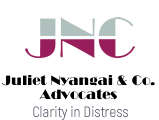
HOW CORRUPTION CAN FUEL TERRORISM
- 17th January 2016
- JNC Advocates
- Civil Law, Law, Rule
- Corruption, Criminal Law, JNC Advocates, Terrorism, Urban Crime
- 0 Comments
The link between corruption and instability is undisputable. In countries where corruption is rife, insecurity tends to take a heavy toll on economic and development initiatives. Several factors can be attributed to either strengthen or support this link. When disenfranchised populations see leaders amassing wealth unfairly through corruption while their Governments fail to deliver services, people feel spited and let down. This frustration may spurn on the populace to turn to other agencies for protection, swelling the ranks of organized crime groups.
In Kenya, organized illegal groups such as the Mungiki, Mombasa Republican Council (MRC), Kamjesh and the Mt Elgon based Sabaot Land Defence Forces (SLDF) all arose in the guise of providing essential services to the citizenry besides serving as a catharsis for collective community injustice. Such groups arise and thrive in contexts with deteriorating and weakening governance systems and institutions that often fall short of protecting fundamental rights and freedom. Furthermore, it is worth noting that the MRC gained attraction due to its clarion call to address perceived development inequalities and perceived marginalization in the Coastal region which it says successive Governments have done nothing to address.
Part of their grievances centred on the selective access to economic opportunities such as land ownership and employment in the public service or State institutions such as the Kenya Ports Authority. It is this manifestation of corruption as an inequality driver that catapulted the violent enterprise within the MRC.
Uprising
Corruption undermines the efficacy of national institutions and severely weakens the policy formulation process. As a result, mass disenfranchisement from ownership of government projects can be a strong incentive for popular uprisings that threaten the legitimacy of a regime. A case in point is the 1991-2002 uprising in Sierra Leone by the Revolutionary United Front led by Foday Sankoh. The most portent grievance that the RUF advanced was endemic neo-patrimonialism and a self-enriching culture widespread in the government of Joseph Momoh. While the regime could not be able to fairly distribute the gains from the massive mineral resources, it further stifled opportunities for young people to access opportunities regardless of their ethnic, regional and gender differences. It is a cringing shame when government entities become known as citadels of corruption. Article 227 of the Kenyan Constitution states that when a State organ or any other public entity contracts for goods and services, it shall do so in accordance with a system that is fair, equitable, transparent, competitive and cost effective.
However, accounts of ongoing misappropriation of funds by ministries and state bodies such as the Youth Enterprise Development Fund and the National Youth Service (NYS) could provide the fuel needed by extremist groups to radicalize young people to engage in terror related activities as a way of hitting back at the government.
Whilst there is a great deal of debate on what constitutes terrorism and who is a terrorist, it is apparent that the vulnerability of young people who feel excluded and aggrieved makes it easy for extremist groups to take advantage of the them and ingrain them.
Terrorism Financing
Earlier in the year, the Kenyan Government, through the Ministry of Foreign Affairs, communicated to the US, UK, Norway and Finland Governments, informing them of the status of the “suspect CSOs” and how they were allegedly promoting Al-Shabaab activities.
While it remains a grey area and possibly a matter to be determined by the courts, there has to be caution in branding all Non-Governmental Organizations which support human rights as supporting terror related activities.
Moreover, the ability of terrorist organizations to use charities as a disguise should not be seen by banks as a pretext to impose barriers on the work of humanitarian and remittances organizations in general. A recent publication by Transparency International advised banks to always conduct an appropriate and proportionate risk assessment on an individual customer basis.
Illegal Firearms
Arms trafficking also known as gunrunning is the illegal trafficking or smuggling of contraband weapons or ammunition. There have been reports that there is a thriving illegal gun market in Kenya. A Human Rights Watch (HRW) report in 2002 on the proliferation of small arms in Kenya found that some weapons had originated from places as far away as China and the United States. Most arms had circulated through war zones in neighboring countries before landing in Kenya.
It is a known fact that most of the weapons in urban crime, cattle rustling and poaching and other terrorist activities have been smuggled from neighboring countries. In May this year (2015), a study by Kenya National Focal Point and Small Arms Survey revealed that about 600,000 firearms in Kenya are in the possession of unlicensed owners.
With bribery and corruption, weapons can end up in the wrong hands and fuel violence. Illegal arms fuel insecurity. In regards to dealing with the proliferation of small arms in Kenya, there out be a revision of laws and policy and implementation of the existing laws to combat the trade and use of illicit weaponry in an effort to enhance peace, security and development.
Immigration and Citizenship
A report by The Guardian online on December 2, 2014 suggested that an investigation into the Mandera quarry worker massacre where 36 persons lost their lives revealed that the attackers not only roamed freely in the area but were also assisted by the police and immigration officers to cross the Kenya-Somalia border. The border has long been alleged to be a conduit for smugglers of sugar, charcoal and other goods as well as human and drug traffickers.
It is alleged that terrorists use permeable spots to cross into North Eastern Kenya from Somalia by paying corrupt border police and security officers. It is widely believed that last year’s horrific attack on the Westgate shopping center was as prolonged as it was because troops were busy looting and plundering the place before attempting to make efforts to ending the siege.
The National Police Service established under Article 243 of the Constitution is as per Article 244 (b) mandated to ‘’prevent corruption and promote and practice transparency and accountability’’ has a resounding repute of sleaze and ravish appetite for bribes.
The latest Transparency International Corruption Perception Index awarded the Kenyan Police an 81 per cent corruption score, making it the most corrupt institution in Kenya. Unsurprisingly, the vast majority of Kenyans do not trust the police. Past surveys on corruption by Transparency International show that an average of 90 per cent of Kenyans considers them to be either corrupt or extremely corrupt.
Due to bribery and corruption, criminals can easily acquire immigration and citizenship documents such as passports, identity cards, birth certificates even from State offices in Kenya. De-linking institutionalized corruption as an enabler of terrorism requires coordinated set of legal, policy and legislative steps.
First, there has to be an immediate implementation of stringent anti-corruption legislation, policies and action plans. Secondly, there has to be an expedited judicial process in dealing with corruption cases to develop deterrence measures and curb attitudes in society that present corruption as unavoidable. Third, a whole of government approach in ensuring that all state institutions and officers are aware of and utilize a well functional program of victim, witness and whistle-blower protection to assist in ensuring confidentiality and to protect those who lodge allegations of corruption, and ensure that sufficient funding be allocated for its effective functioning. Fourth, there is an urgent need to adopt an asset declaration act for authorities, make available judicial remedies and other control mechanisms for internal oversight bodies and safeguard confidential complaint mechanisms.
Finally, efforts that ensure freedom of expression, personal security of anti-corruption advocates and a free and independent media should be well funded in order to maintain an enabling environment for anti-corruption efforts.
In conclusion, the link between terrorism and corruption is only strengthened when laws put in place and selectively or superficially implemented.
We have good laws which if effected would aid curb corruption and at large terrorism with a good example being the ‘’Public Officer Ethics Act Chapter 183 Laws of Kenya’’. Good laws ought just not to be “simple textbook analysis”, something which looks good on paper but fall short of implementation. The Rule of Law must and should be upheld and this is binding to all persons, and all state organs both at National or County Government.
This article appeared in the LSK Magazine, The Advocate, Volume 1, Issue 5, December 2015-March 2016.
http://lsk.or.ke/Downloads/Juliet%20Nyang’ai%20Article.pdf



Leave a Reply
You must be logged in to post a comment.